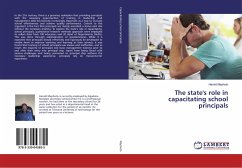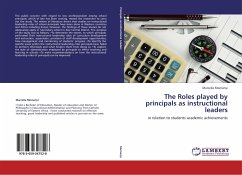In the 21st century, there is a growing realisation that providing principals with the necessary opportunities of training in leadership and management skills has become increasingly important as a way to increase school effectiveness and achieve quality performance. Central to this argument is the fact that principals are merely accorded a status and role without the necessary training. To explore the state's role in capacitating school principals, quantitative research methods approach were employed to collect data from 100 educators and 20 Head of Departments (HoDs). This was done through administration of questionnaires. While it is expected that principals should effectively and rigorously be developed to enable them to improve teaching and learning at their schools, it was found that training of school principals was elusive and ineffective, and as result, the majority of principals lack basic management training prior to and after their entry into principal ship. Apart from being faced with various challenges and being promoted to principal ship without the necessary leadership experience, principals rely on trial-and-error experience.








